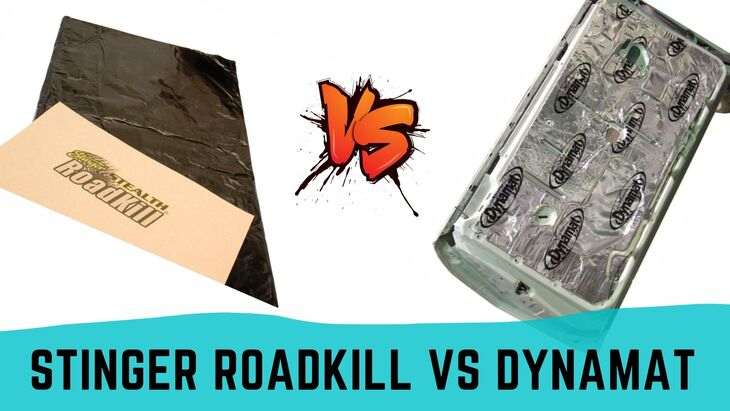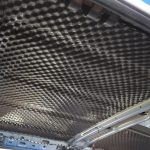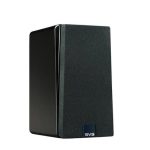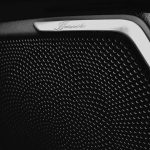Over the years, Stinger Roadkill and Dynamat have offered the best choice for those looking for automotive sound deadening materials. And considering that they are both great and pricey brands that have dominated the market for so long, their quality is indisputable.
We will compare Dynamat vs. Stinger Roadkill on a number of aspects and features, including the benefits that each offer to help you make an informed choice between these two big brothers.
Let’s examine both brands in detail.
Where does Dynamat excel over Stinger Roadkill?
- Extra strong adhesive properties
- It is ideal for the entire vehicle protection
- It adheres to most surfaces
- You do not require special tools to install
- Pretty lightweight
- Enhanced sound quality
Where does Stinger Roadkill excel over Dynamat?
- Self-adhesive ability—it sticks on most surfaces
- Excellent heat dissipation
- Stinger is way cheaper than Dynamat
- It is also much heavier, but this also means much quieter results
- You don’t require a heat gun/roller during installation
Dynamat- the answer to road noise
Dynamat is an all-in-one sound deadening material that allows you to minimize the road noise, stop vibrations and resonance, and much more. It is proudly made in the USA and used by enthusiasts all over the map.
Overall, it is one of the most expensive products in the industry, but its sound deadening capability is also excellent.
Key features of Dynamat
Aluminum interior
Dynamat features an aluminum constraining layer that is not only moldable but also conforms smoothly to the interior of your car. What’s more, its unique sticky butyl layer conforms to its patented Vector chemistry, which helps deliver a peaceful listening environment in your car.
The aluminum layer also acts as an insulator against extreme heat conditions. The coat helps to emit as much heat as possible during the heat and summer, so you don’t have to have your AC running throughout. At the same time, it keeps you warm during winter without compromising on its sound deadening efficiency.
Easy to install
Dynamat offers large sheets of between three and eight square feet, which makes installation much easier. In addition, its butyl rubber layer adheres firmly to most interior surfaces, and it remains in position, but you’ll need to use a roller and a heat gun. Also, Dynamat is a pricey product but considering its longevity and the high quality of the material it is worth every penny.
Exceptionally thin
Compared to Stinger Roadkill, Dynamat is super thin, which helps eliminate unwanted noise. High speed and general car noise can prevent you from enjoying good music, having conversations, or hearing your GPS.
In terms of weight, Dynamat is lighter than Stinger Roadkill, but it is exceptionally effective in eliminating unwanted noise. The advantage of this is that with Dynamat, you can be sure of a quitter ride but without adding extra weight to your vehicle.
Excellent coverage
Another reason why most users choose this deadener is its ability to cover a large area. Dynamat is packed as a set of nine sheets, which is more than enough for most medium-sized vehicles. The material is also easy to cut, making it a great choice for DIY installation.
Stinger Roadkill—the raising giant
As the name suggests, Stinger Roadkill is designed to reduce vibrations and ‘kill’ all road noise. Whether you’re using factory speakers or an aftermarket stereo system, vibrations from the thin metals used in car doors can make your music rattle.
Stinger Roadkill offers a more solid surface that allows for better sound reproduction and improved speaker performance. But- wait there is more.
You can use Stinger to cover door panels, under the seats, the floor, and the entire trunk to help reduce road noise.
Unique features of Stinger Roadkill
Less road noise and distractions
Stinger Roadkill is expertly designed using ultra-thick butyl rubber to help absorb road and car noise in general. Reduced road noise translates to minimized driver fatigue and less shouting during conversations, or when making wireless phone calls. Stinger is highly recommended for those looking to upgrade their speakers or anyone after a good driving or audio experience.
Excellent thermal properties
Another characteristic that sets Stinger apart from its competitors is its exceptional thermal properties. The material is designed with an aluminum top layer, which helps to control the amount of heat that passes through the panel. This will result in a cooler interior, regardless of the temperatures outside.
You can also use this product on the firewall to help reduce the impact of high temperatures coming from the exhaust and engine.
Odorless
The best part of this sound deadening material is that it is free from odors, and it does not produce unpleasant smells or toxic substances when installed in your vehicle. Unlike other cheaper alternatives, Stinger does not have a tar-like smell once installed. It gives off no gas or smell, which is an important consideration, especially to those allergic to strong smells.
Ease of installation
The best part about Stinger is that it is easy to install on door panels, floors, and even trunks. No surface preparation is needed before installation, although it is recommended to clean the surface before applying- preparation is key to an excellent finish.
Furthermore, it is self-adhesive, which saves the hassle of using glue or a heat gun when rolling the material into your panels.
Conclusion
So far, the Stinger Roadkill vs. Dynamat is one the most captivating head-to-head comparison we’ve done.
When you compare both Stinger Roadkill and Dynamat, you can easily realize that they offer a number of similar features.
Both materials are incredibly reliable, but most people believe that no material can match the effectiveness of Dynamat. While Dynamat offers more advanced features, Stinger Roadkill has actively fought back with its multiple layers to stop any vibration and rattling noise.
The bottom line is whether you’re a car audio expert or simply looking to improve the sound quality from your audio system, you’ll need to upgrade your car with a sound deadener.
So, will it be Dynamat or Stinger Roadkill? Let us know down below.
Michael Evanchuk is a San Francisco-based sound engineer with 20 years’ experience installing, troubleshooting, and repairing commercial, automotive, and household sound equipment. Evanchuk owns an auto stereo center, where he offers highly competitive car audio installation and repair services. He has written dozens of articles on different sound engineering topics, all of which have been published in leading journals, blogs, and websites.





